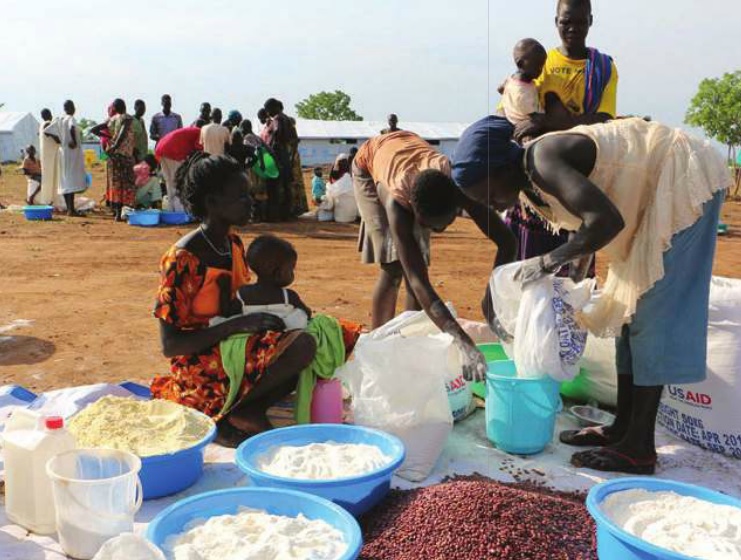
UNHCR to expand cash-based assistance to vulnerable refugees after study in Uganda shows benefits to local economies
Uganda has for a long time been praised for the way it treats refugees. While many countries keep refugees in camps away from citizens, the Uganda government has for decades allowed refugees to be as free as possible.
Uganda is at the moment home to about 800,000 refugees, mostly from South Sudan, and others from Burundi and the Democratic Republic of Congo. This makes Uganda the third largest refugee hosting country in Africa after Ethiopia and Kenya.
The majority of these live in Uganda’s rural countryside, where they are given emergency food aid before being allocated small plots of land and given materials to build a basic shelter, cultivate food, get an education, and work; for those who have skills.
International agencies, including the United Nations High Commission for Refugees (UNHCR), have noted Uganda’s generosity towards refugees. Now, however, evidence is emerging that the Ugandan model might in fact have even more value than previously noted.
A study done in two Ugandan refugee settlements has found that there could actually be an economic gain from hosting refugees, especially for local communities.
The study found that humanitarian assistance, when given in cash form and provision of land to refugees for agricultural production creates significant economic benefits for the local economy. The USAID-funded study was done between March and June this year by researchers from the University of California, Davis, in partnership with the United Nations World Food Programme (WFP).
It was done in and around Uganda’s largest refugee settlement in Adjumani in north-western Uganda which hosts 185, 000 refugees and the fifth largest settlement in Rwamwanja in Kamwenge District in the Southwest of the country which is home to 60,000 refugees.
The research team interviewed close to 1500 households and 385 local businesses inside the two settlements and within a 15-km radius. Data from these findings was then used to construct a local-economy impact evaluation model fromwhich the results were derived.
For two years now, since 2014, the WFP and UNHCR have been giving a small portion of refugees in these settlements food aid in cash form instead of traditional food rations. About 10% of the 650,000 refugees WFP is assisting have been getting cash value of what they would have got as food rations, with inflation factored in.
A regular household on full ration has been receiving Shs28,000 (Approx.US$8) per person per month while a household in the extremely vulnerable category full ration gets Shs 36,000 (Approx. US$11) per person per month. Until now, WFP has not been able to say howwell or badly the cash aid instead of rations was doing. The new research changes that.
“This is the first time in Uganda that we have been able to calculate the economic impact of humanitarian food assistance,” said Cheryl Harrison, the WFP deputy country director.
“It is also the first time that we have calculated the economic impact of Uganda’s generous approach to providing agricultural land to refugees,” Harrison said following the report launch at the WFP country office in Kampala on Oct.28.
 The Independent Uganda: You get the Truth we Pay the Price
The Independent Uganda: You get the Truth we Pay the Price



